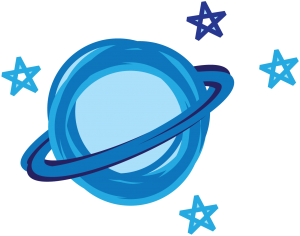 [TORONTO] The Dunlap Institute’s Discover the Universe program has been awarded significant financial support from the PromoScience Program of the National Sciences & Engineering Research Council of Canada (NSERC) and the Frederick and Douglas Dickson Memorial Foundation.
[TORONTO] The Dunlap Institute’s Discover the Universe program has been awarded significant financial support from the PromoScience Program of the National Sciences & Engineering Research Council of Canada (NSERC) and the Frederick and Douglas Dickson Memorial Foundation.
Discover the Universe (DU) provides instruction and resources, in French and English, that help science teachers across the country and around the world teach astronomy to their students. DU provides astronomy teaching support through live workshops, webinars and teaching resources for teachers.
“Astronomy is a vast subject and it is intimidating to teach it when you have no training in the field,” says Julie Bolduc-Duval, who founded DU in 2011 with financial support from PromoScience. “That’s why we created Discover the Universe. We’re helping teachers so that more kids will be exposed to our wonderful Universe and understand our place within it.”
DU is offered by the Dunlap Institute for Astronomy & Astrophysics, University of Toronto, and the Canadian Astronomical Society, in collaboration with the Centre for Research in Astrophysics of Quebec.
According to Professor Michael Reid, Outreach Coordinator for the Dunlap Institute of Astronomy & Astrophysics, University of Toronto, “The Dunlap’s mission to share the thrill of astronomical discovery with people of all ages has made working with Discover the Universe a natural fit.”
“We’re immensely grateful to NSERC,” says Reid, “without whom we wouldn’t be able to keep delivering innovative, bilingual teacher training to teachers across Canada and around the world. This funding will help ensure that thousands of Canadian kids have eye-opening encounters with the cosmos that we know can inspire them to pursue careers in STEM.”
PromoScience is a NSERC program that offers financial support for organizations that promote an understanding of science, engineering, mathematics and technology in young Canadians. The newly announced award to DU includes funding for three years.
The Dunlap has also received a donation from the Frederick and Douglas Dickson Memorial Foundation. The legacy of two brothers, Frederick and Douglas Dickson, the foundation generously supports charities working in education, community services and health in Toronto. Their donation will help the Discover the Universe program equip teachers to lead astronomy education through bilingual training, webinars and resources.
“The Dunlap Institute is grateful for the recent donation from the Frederick and Douglas Dickson Memorial Foundation,” says Reid. “And our sincere thanks go to the foundation for their partnership.”
Visit the Discover the Universe website.
Visit the NSERC PromoScience program website.
-30-
CONTACT INFORMATION:
Julie Bolduc-Duval
Discover the Universe
e: julie.bolduc-duval@dunlap.utoronto.ca
p: 418-332-0428
Professor Michael Reid
Public Outreach Coordinator
Dunlap Institute for Astronomy & Astrophysics
University of Toronto
e: mike.reid@utoronto.ca
p: 416-978-0307
The Dunlap Institute for Astronomy & Astrophysics at the University of Toronto is an endowed research institute with nearly 70 faculty, postdocs, students and staff, dedicated to innovative technology, ground-breaking research, world-class training, and public engagement. The research themes of its faculty and Dunlap Fellows span the Universe and include: optical, infrared and radio instrumentation; Dark Energy; large-scale structure; the Cosmic Microwave Background; the interstellar medium; galaxy evolution; cosmic magnetism; and time-domain science.
The Dunlap Institute, Department of Astronomy & Astrophysics, Canadian Institute for Theoretical Astrophysics, and Centre for Planetary Sciences comprise the leading centre for astronomical research in Canada, at the leading research university in the country, the University of Toronto.
The Dunlap Institute is committed to making its science, training and public outreach activities productive and enjoyable for everyone, regardless of gender, sexual orientation, disability, physical appearance, body size, race, nationality or religion.
###
